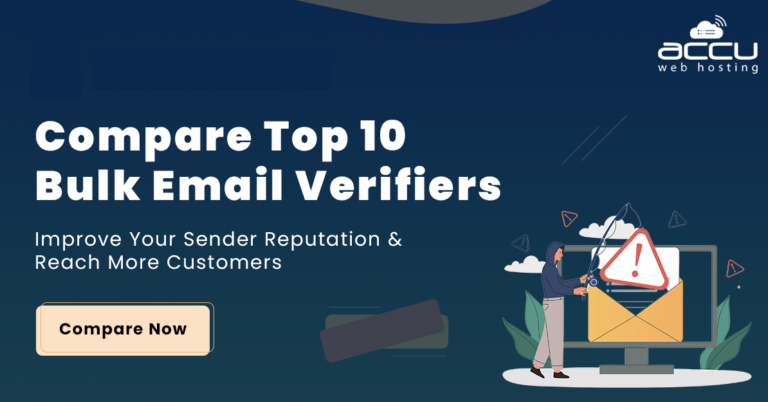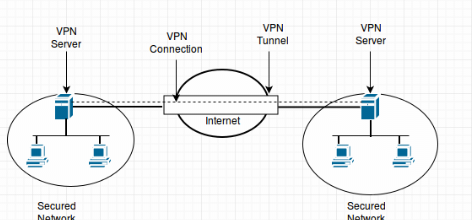Best Web Hosting for Freelancers: Build, Host & Earn in 2025
Freelancing comes with a lot of freedom — you choose your clients, set your schedule, and build your brand on your own terms. But to truly stand out in a crowded market, having your own space on the web isn’t optional — it’s a must. That’s where the right web hosting for freelancers plays a key role.
Whether you’re a designer, developer, writer, or digital marketer, a reliable hosting setup gives you more control over your portfolio, builds credibility with clients, and opens doors to new opportunities. From showcasing your work to managing client sites, hosting can support more of your freelance goals than you might think.
We’ll cover what you need, why it matters, and how to choose hosting that supports your freelance goals.
- Freelancers who offer hosting as part of their service earn up to 30% more per project.
- Freelancers using white-label hosting earn up to 25% more by branding it as part of their service.
Why Freelancers Need Web Hosting?
Freelancers benefit from their web hosting in many ways. For one, having an independent website provides you with a home base to display your portfolio, present services, and feature client reviews—all under your own name—helping build trust and professionalism.
Unlike social media or marketplace profiles, hosting your own site ensures you own the platform and audience, giving you full control over content, design, and functionality. It also opens the door to smarter marketing opportunities: you can optimize for search engines, collect leads, and even earn passive income through affiliate or hosting reseller programs.
For freelancers who build or maintain client websites, offering hosting services can become a reliable source of recurring income. Many clients don’t want to handle the technical side of hosting, so bundling it with your services adds value while giving you control over performance, easier access for future updates, and a stronger client relationship.
That said, not every freelancer needs to offer hosting. If your work is strictly project-based and your clients prefer to manage their own hosting, it may be enough to simply guide them to a trusted provider. Even then, having your own hosting remains useful for demo sites, testing environments, or managing your personal portfolio.
In short, web hosting for freelancers isn’t just a technical add-on—it’s a strategic investment in your credibility, flexibility, and business growth.
Some providers align well with freelance needs — flexible plans, ease of use, and room to grow. AccuWeb Hosting is one such option worth exploring.
Which Hosting Fits Your Freelance Workflow?
As a freelancer, your hosting needs can change depending on the kind of projects you handle — from simple portfolios to full-fledged client sites. Here’s a breakdown to help you pick the right hosting based on where you are in your freelancing journey:
-
Shared Hosting
Ideal when you’re just starting out, or managing a few low-traffic websites like a personal portfolio or basic client blogs. It’s affordable and easy to manage.
Choose this if: You’re showcasing your own work or building small websites for local clients. -
Reseller Hosting
A great option if you’re ready to offer hosting as a service to your clients. With reseller hosting, you can manage multiple client accounts separately, set your own pricing, and build your own hosting brand — all while the backend is handled by the provider.
Choose this if: You want to expand your freelance business by offering hosting to clients, managing multiple sites easily, or earning extra income through your own hosting plans. -
VPS Hosting
A smart step up when you start handling more client projects or need better performance and security. You get more control over the server environment without the high cost of dedicated hosting.
Choose this if: You’re hosting multiple client sites or e-commerce projects and want isolated resources. -
Dedicated Hosting
Offers full server control and maximum performance. Rarely needed unless you’re managing large-scale apps or enterprise-level client platforms.
Choose this if: You’re managing enterprise-level projects, hosting complex applications, or serving clients who require maximum server resources, custom configurations, and the highest level of reliability. -
Static / Jamstack & Headless CMS Hosting
Best suited for developers creating fast-loading, secure static websites or using modern CMS frameworks.
Choose this if: You’re building fast, API-driven client sites with fewer backend needs. -
WordPress/CMS Hosting
Pre-configured for platforms like WordPress. Easy to use and perfect for content-heavy websites.
Choose this if: Most of your clients use WordPress or similar CMS platforms and want quick deployment.
Looking for a domain name as well?
AccuWeb Hosting offers domain names at a very pocket-friendly price. In fact, many of our hosting plans include a free domain — so you can get started without any extra cost. It’s a smart way to save and get everything in one place. Check now to find your perfect domain name!
Freelancer Hosting Essentials: Don’t Miss These
Before you choose a hosting provider, make sure these essentials are included:
- Free SSL certificate for secure connections
- Reliable uptime (99.9% or higher)
- Scalable plans (easy to upgrade when you grow)
- Fast loading speed and optimized performance
- Easy control panel (like cPanel or Plesk)
- Daily or weekly backups
- Responsive customer support (24/7)
- Option to manage multiple sites (if needed)
- Support for WordPress or CMS tools
- White-label features (if you plan to select reseller hosting)
Before finalizing a plan, take a moment to understand how to match your hosting resources to your projects. Here’s a guide to help.
What to Know About Hosting Providers (Before You Choose One)?
There’s no one-size-fits-all provider, but here are a few things freelancers often discover only after signing up:
-
Some budget providers add setup costs
Hostinger may seem like a low-cost option, but it charges a $4.99 setup fee and doesn’t include free backups in its entry-level shared plans—two things many new freelancers expect out of the box.
-
Premium WordPress plans aren’t always worth it
Platforms like Pressable start at $25/month for just 1 website, while Nimbus Hosting begins at over $53/month. These options can be expensive for freelancers managing multiple small client sites or personal projects.
-
Not all “reseller” plans offer full branding control
If you plan to offer hosting as part of your services, ensure that your provider includes white-label features. Some just let you host multiple websites, but don’t support client logins or brand removal.
-
Platform-specific hosting can limit your flexibility
Bluehost and similar providers offer great tools for WordPress, but if you later want to manage non-WordPress projects or run custom frameworks, these platforms might not offer the control or compatibility you’ll need.
-
Support and stability matter more than you think
Hosting downtime or poor support reflects badly on you, not just the provider. Look for hosts with 24/7 live chat, phone, and ticket support—especially when you’re managing client websites or tight deadlines.
-
AccuWeb Hosting supports freelancers at every level
AccuWeb Hosting is built with flexibility in mind. There are no setup fees, and even the basic shared plans include daily backups, free SSL, and cPanel. It also supports unlimited domains on higher-tier plans, offers WordPress-optimized servers, and provides white-label reseller hosting for those who want to package hosting into their services. With added perks like LiteSpeed caching, Imunify360 security, RAID redundancy, CloudLinux OS, and 24/7 support, it’s a solid fit whether you’re just starting or scaling your freelance business.
Conclusion
For freelancers, choosing the right hosting isn’t just a technical step — it helps you look professional, stay in control, and work better with clients. Whether you’re showing your own work or handling client sites, the right hosting plan can make things easier and support your growth. Start with what you need now, but keep flexibility in mind so your hosting can grow with your freelance journey.
FAQs
1. What is the best type of hosting for a freelance beginner?
Shared hosting is typically the best choice for beginners due to its affordability and ease of use. It’s ideal for a personal portfolio or small client sites with low traffic. Look for providers with scalable plans so you can upgrade as your needs grow.
2. What is white-label hosting, and how does it work for freelancers?
White-label hosting allows you to resell hosting services under your own brand. You purchase hosting from a provider and offer it to clients as part of your services, without them knowing it’s from a third party.
3. What should I do if I’m not tech-savvy but want to use hosting?
Opt for managed hosting or WordPress/CMS hosting, which simplifies setup and maintenance. Look for providers with user-friendly control panels (like cPanel) and 24/7 customer support to assist with technical issues.
About the Author: Jason-Pat
Founder & CTO at AccuWebHosting.com. He shares his web hosting insights at AccuWebHosting blog. He mostly writes on the latest web hosting trends, WordPress, storage technologies, Windows and Linux hosting platforms.



